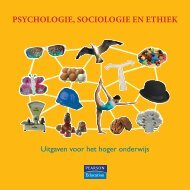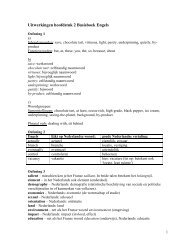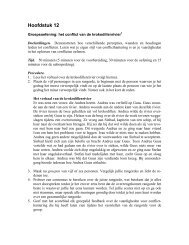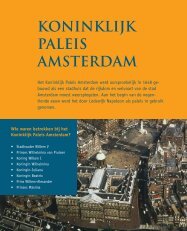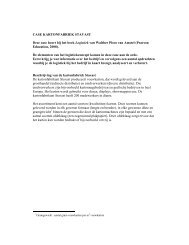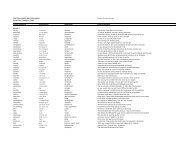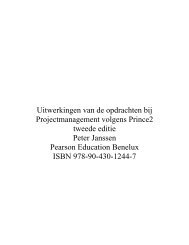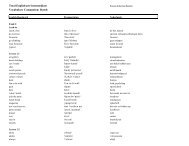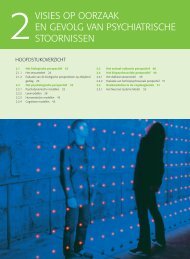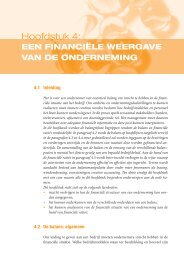Uitwerkingen hoofdstuk 6 - Pearson Education
Uitwerkingen hoofdstuk 6 - Pearson Education
Uitwerkingen hoofdstuk 6 - Pearson Education
You also want an ePaper? Increase the reach of your titles
YUMPU automatically turns print PDFs into web optimized ePapers that Google loves.
For the study, researchers imaged the brains of 15 cannabis smokers and 16 individuals<br />
who did not use the drug. The scientists, led by Murat Yücel at the University of<br />
Melbourne and colleagues at the University of Wollongong, said scans on larger numbers<br />
of people were needed to confirm the extent of the effect.<br />
"Although modest use may not lead to significant neurotoxic effects, these results suggest<br />
that heavy daily use might indeed be toxic to human brain tissue," the scientists report in<br />
the journal Archives of General Psychiatry.<br />
Cannabis users also fared worse in tests of verbal memory and were more likely to have<br />
low-level symptoms of psychotic disorders such as schizophrenia and mania.<br />
Last month, a team at New York University scanned the brains of a group of 17- to 30-<br />
year-olds who had smoked cannabis two to three times a week for at least a year. In that<br />
study, the brains of drug users looked no different from those who had never taken<br />
cannabis.<br />
In 2004, Cyril D'Souza, a professor of psychiatry at Yale University, reported that THC,<br />
the active ingredient in cannabis, caused fleeting schizophrenia-like symptoms in users,<br />
ranging from suspiciousness and delusions to poor memory and attention span.<br />
(bron: http://www.guardian.co.uk/science/2008/jun/03/drugs.drugsandalcohol)<br />
Case 2<br />
Voorbeelduitwerking van brainstormsessie en tekstplan (eerst in het Nederlands, daarna<br />
in het Engels)<br />
Brainstormsessie<br />
Waarom is dit een issue? Waar zouden mensen last van kunnen hebben als er gebeld<br />
wordt in openbare ruimtes?<br />
- geluidsoverlast (in stille ruimtes)<br />
- deelgenoot gemaakt worden van privé-gesprekken (bv. in trein/bus/restaurants)<br />
- respectloos (bv. tijdens colleges, als andere mensen aan het woord zijn, bij het<br />
afrekenen in de winkel, maar ook tijdens film/uitvoering)<br />
- gestoord worden in concentratie (bv. als je aan het werk bent)<br />
Wat vind ik? Hoort bij het leven nu; is niet meer weg te denken en hoeft ook niet meer<br />
weggedacht te worden, maar zijn wel richtlijnen nodig.<br />
Mogelijke richtlijnen:<br />
- bij geluidsoverlast: niet bellen in zogenaamde ‘stilte ruimtes’ – deze dienen<br />
aangegeven te worden met een label of sticker.<br />
- deelgenoot gemaakt worden van privé-gesprekken: tenzij aangegeven dat er ergens<br />
helemaal niet mag worden gebeld, stemvolume zo laag mogelijk houden.<br />
- in bepaalde ruimtes of situaties zou per definitie niet gebeld mogen worden, uit<br />
respect: collegezalen, ziekenhuizen, bij de kassa)<br />
11



